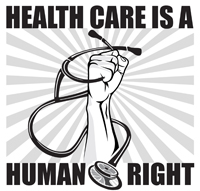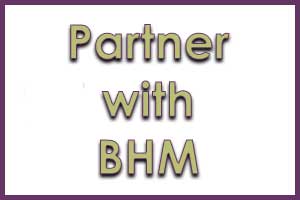Backpack Healthworker Teams

BHM supplied medic teams serve villagers and Internally Displaced People in rural Burma with medical care.
LIFE FOR BURMA'S ETHNIC MINORITIES
Despite the election of Aung San Suu Kyi’s National League for Democracy to hold the majority of seats in Burma’s parliament, the Burma army continued its unrestrained assault on Burma’s ethnic minorities - the Kachin, Shan, Pa’laung, Mon and Karen peoples. In 2017, the world witnessed the army’s blitzkrieg against the Rohingya, killing 11,000 and forcing 700,000 to flee. Today, the world remains unaware of the army’s continuous oppression on the Kachin, Palaung and Shan in northern Burma and the Karen in eastern Burma. As a sample of this violence, last July, Burma army soldiers raped and strangled Nhkum Nang Htang, a 48-year-old mother, in a northern Burma village. On January 2nd 2020, soldiers shot 2 men gathering wood outside their village. On May 1st, Burma army soldiers attacked Nam Gat village, burning homes and stealing livestock and food. These attacks are typical and not isolated.
The WHO reports 587,000 people are internally displaced with an equal number living in isolated villages. These 1.2 million people have no access to health care. In these areas, the health impact of the isolation is devastating:
- 135 newborns die/1,000 births (IMR)
- 7.2 women die/1,000 births (MMR)
- 11.6% of the population suffer from Malaria
- 2.8% of the population suffer from Dysentery and pneumonia
Isolated, without government health care support, the ethnic minorities in Burma endured illnesses and diseases that are accentuated by malnutrition. In 2002, public health researchers from the UCLA and Johns Hopkins University surveyed eastern Burma’s conflict zones. The results were stark – with mortality and morbidity rates abhorrently worse than Burma as a whole, neighboring Thailand and world standards.
- The Infant Mortality Rate was 135 deaths per 1,000 births (US rate = 5.8/1,000)(IMR)
- The Maternal Mortality Rate was 7.2 deaths per 1,000 births (US rate = 0.6/1,000)
- The Malaria Morbidity (illness) rate was 11.6% - 11.6% of the population had malaria
BACKPACK MEDIC TEAMS
Since 1999, Burma Humanitarian Mission has partnered with the Backpack Health Worker Teams (BPHWT) to recruit, train and outfit teams of backpack medics and health workers. Ethnic minorities from the Karen, Kachin, Shan, Pa’laung, Mon, Chin, Rohingya communities comprise BPHWT – in all leadership and field team roles. Once trained and equipped with 6 months of supplies, the backpack teams return to their communities. The typical team consists of:
- Five medics (2-3 senior medics paired with 2-3 junior medics)
- Five Village Health Volunteers (VHV)
- 5-10 Traditional Birth Assistants (TBA)
While the medics travel to 9 to 12 villages each month, the VHV and TBA remain in their homes. The backpack teams are outfitted with an array of basic medicine: Penicillin, Amoxicillin, various anti-malarial treatments (quinine, artesunate, etc) – more than 55,000 doses of medicine for the year. The teams also rely upon more than 3,000 individual medical supply items, such as bandages, gauges, syringes, stethoscopes and thermometers.
Communities in the US and similar countries with access to modern hospitals with ICU facilities, highly trained staff and robust medicines struggle to mitigate COVID and the pandemic’s suffering. For Burma’s ethnic minorities -- in isolated villages or camps with no running water or electricity -- COVID’s risk is infinitely higher.
In the spring of 2020, BHM and our BPHWT partners launched a ‘Presumptive Diagnostic COVID program’ to confront and mitigate the coronavirus’ risk. Created to train and equip medics with the skills and resources to use presumptive diagnostic methods for COVID, treat the patients, and educate the communities and families in basic methods to prevent the virus’ spread plus how to isolate and care for a sick person with limited resources. The Backpack Medic COVID response lacks the funds to execute – please consider a donation of $25 to outfit a team with surgical masks, $85 for a non-contact thermometer, or $10 for a team’s hand sanitizer needs.
To read our full 2019 Annual Medic Report, please click here.



